Ricoh GR III x
Image quality without compromise
The
RICOH GR III x is equipped with the newly developed 26.1-mm GR lens, which corresponds to a 40-mm angle of view in 35mm format, and is very close to the effective field of view of the human eye. The lens, with this versatile angle of view can be used very universally. It lies between the wide-angle and normal ranges, and thus offers a wide spectrum of image effects. With the RICOH III x, a number of new and improved features.
The RICOH GR III x was designed while maintaining the basic values for the GR series: Image Quality Optimization, Snapshot Capabilities, and Mobility.
The GR lens for perfect sharpness performance, with high resolution and high contrast
The GR lens has been equipped with RICOH IMAGING’s unique optical technology, ensuring high image quality at all times. While a compact optical system of 6 elements and 4 groups with a focal length of 18.3 mm (approx. 28 mm KB equivalent) and an aperture of F2.8 is used in the GR III, a new optical system of 7 elements and 5 groups with a new focal length of 26.1 mm (approx. 40 mm KB equivalent) was developed for the GR III x. Both lenses feature high-precision molded glass lenses with high refractive index and low dispersion. In addition, aspherical glass lenses have been optimally integrated into the respective optical systems to suppress optical distortion and chromatic aberration to the absolute limit and achieve a high level of sharpness. The result is sharp and clear images over the entire image area, even at open aperture settings.
Large 24.2 MP APS-C format image sensor, for perfect image capture
The GR III and GR III x are equipped with a high-resolution approx. 24.24 MP CMOS image sensor in APS-C format. In addition to a wide dynamic range, it is also suitable for large-format prints.
The filterless anti-aliasing design (AA), supports the lens performance and ensures the best possible image quality in the interaction of image sensor and lens
.
Advanced image processing options and high responsiveness: discover the possibilities with the image processor, the GR ENGINE 6
The image processor - the GR ENGINE 6, in the GR III and GR III x is an important factor in image creation. It enhances the GR’s basic high image quality and provides more detail. Fast processing enables a combination of high-resolution sensor and 14-bit color depth (RAW).
This engine also contributes to improved responsiveness and functionality in autofocus and movie shooting
.
Shooting at ISO 102400 becomes possible with signal processing technology developed by us
In addition to the image processor, the GR III and GR III x feature an accelerator unit
. The
signal output from the image sensor is prepared for processing in the image processor, reducing noise and providing excellent resolution and color reproduction across the entire sensitivity range - even when shooting at ISO 102400
.
Body-integrated Shake Reduction (IBIS) on three axes brings exposure reliability of up to four exposure stops
Despite the smallest body dimensions, the engineers have succeeded in integrating Shake Reduction into the body of the GR III and the GR III x
. This means that even with longer exposures, the camera’s image quality is not compromised.
This reduces camera shake during snapshots, even at longer exposure times, to produce sharp images.
The IBIS system minimizes camera shake on three axes, delivering exposure reliability up to 4 stops*.
*Measured in accordance with CIPA standards
.
AA filter simulator through the Shake Reduction mechanism - to reduce false colors and moiré
The
effect of the optical anti-aliasing (AA) filter is simulated by the moving Shake Reduction (SR) sensor. By moving the image sensor slightly during exposure, false colors and moiré are suppressed.
Depending on the subject, you can choose whether to focus on resolution or reducing false color and moiré. Select [High] or [Low] for the effect settings.
- This function is only available at shutter speeds lower than 1/1000 second
. Capture
the moment
A compact body and functional design with high performance
When developing the GR III and also the GR III x, the goal was to achieve a high level of functionality with the most compact body dimensions. For example, the body size is comparable to the DIGITAL IV, although that was equipped with only a 1/1.7-inch image sensor.
A minimalist design was aimed for to create a camera where compactness and creative possibilities are paramount. The arrangement of the buttons and dials has been chosen so that they can be operated comfortably with one hand.
Hybrid AF with a combination of phase correction AF on the image plane and contrast detection AF
The AF system is a combination of phase correction metering on the image plane for fast metering and contrast detection for high focusing precision.
The usual contrast detection AF problem during focusing has thus been reduced to achieve the fast shooting performance required for street photography.
Short start-up delay of just about 0.8 seconds
The
lens barrel is driven by a powerful motor so that it moves quickly from rest to shooting position. In addition, the power-up program sequence has been optimized to shorten the power-up time. The built-in lens cover also eliminates the need to remove a lens cap.
So they never miss an opportunity to take a picture.
Multiple focus modes for versatile subjects and shooting styles
Eight focus modes are available, including continuous autofocus for many occasions. The focus point can be controlled on the touch-sensitive LCD monitor, and touch and slide movements on the display can also directly control the AF frame.
And with Touch AF, simultaneous focusing and shutter release is possible. Simply tap the subject on the display and the camera focuses and releases - so no spontaneous snapshot is missed
.
Face and eye detection, for even faster response when shooting portraits
This function is enabled in [Auto Area AF], [Select AF] and [Pinpoint AF]. When the face or eye is detected and focused, the focus point is highlighted. Easy switching of the focus point is possible in [Auto Area AF]. This allows you to conveniently switch between detected faces and other subjects without turning off face/eye detection.
Eye detection is new to the GR III x and is also available for the GR III with a firmware update.
Never miss a shot again with Full Press Snap
In Full Press Snap mode, they save important fractions of a second. In this feature, the camera sets to a preset distance value, saving time, and captures the moment in a split second. Full Press Snap can be triggered by using the shutter button or by touching the LCD monitor.
Touch panel and command dial for intuitive camera control
The
LCD monitor is equipped with a touch panel. By simply touching and moving it, you can move the AF frame or access the menu. Also, during playback, you can pinch to change the magnification, swipe to view the previous and next frames, or double-tap the monitor to return to the center of the frame. In addition to this, there is the four-way button with the dial around it. This “user interface” makes it possible to quickly operate the camera with just one hand while holding it securely.
Customizable buttons and functions to match your style
The
camera controls can be customized in many ways. For example, the ADJ and Fn buttons can be user-defined. Or you can save entire sets of settings to the U1/U2/U3 functions on the mode dial. This allows you to quickly and easily adapt the camera to different requirements.
Expanding the range of expressions
Advanced Image Control for more creativity in image composition
The
GR III and GR III x are equipped with the “Image Control” function. This is reminiscent of analog photography, in which different image styles are controlled by film selection. With eleven different presets, different image styles can be simulated and, if necessary, further refined and adapted to one’s own needs.
The variable parameters, depend on the image style selected, but include the following options: Saturation, Hue, High/Low Correction, Contrast, Contrast (highlights and shadows), Sharpness, Shading, Clarity, Toning, Filter Effect, Grain Effect, HDR Tone Value and Hue.
New “DOF (Depth of field) Priority” program automation, perfect for shooting with pan focus
The simplest, and often most reliable, exposure control in snapshot photography is via program automatic. The GR III and GR III x offer the photographer a total of three program control options. In addition to the “normal program”, the camera also has a program line that gives priority to the open aperture. With the GR III x (and via firmware update also for the GR III) there is now also an option with priority given to the smallest aperture setting (GR III*: F8.0, GR III x: F11). In program mode in conjunction with the [Fixed focus] setting, this achieves maximum depth of field for snapshots.
Macro mode, for a variety of close-up shots
Pressing the macro button takes you into a completely different world of photography. The focus range is then between 6 and 12 cm (GR III) or 12 and 24 cm (GR III x) from the front of the lens, allowing impressive close-ups with beautiful background blur.
- Even if the focus mode is set to [Fixed Focus] or [∞], autofocus is activated as soon as the macro mode
is activated.
"Star Trail" shots in nature or in the city with the interval composite function.
This function is especially good for capturing the night sky with shooting stars and other celestial bodies. It can be started directly with the key for the recording function. Here, settings are made for the start, the recording duration or the saving of intermediate images. After the start, images are taken in 10-minute intervals to get impressive shots of the night sky at the end. set.
- Use a tripod. Note that noise reduction at slow shutter speeds and SR are turned off.
- Focus, exposure and white balance are fixed to the value of the first shot
.
Crop mode lets you change the image crop and expand your composition options
Crop mode allows you to electronically adjust the shooting angle. Thus, shooting angles corresponding to focal lengths of 35 mm and 50 mm (KB equiv.) are available for the GR III, and 50 mm and 70 mm (KB equiv.) are available for the GR III x. This allows you to use the appropriate angle of view for your image idea directly when taking the picture.
In
this way, you expand the creative scope with the GR III from realistic wide-angle shots that capture a lot of background information to standard focal length, while with the GR III x you cover the range from standard view to medium telephoto shots that are suitable for portraits and natural standard shots,
for example.
Create special works with multiple exposure
The
term “image composition” applies to no function more than multiple exposure, in which you combine several shots in one image. Here, the camera shows the previous shots on the display, making it easy to align and decide on possible changes to exposure parameters* to shoot another frame or stop shooting, and easily create exactly the kind of photography you have in mind.
*Exposure compensation, ISO sensitivity, aperture and shutter speed can be adjusted based on the exposure mode set for the first image. White balance cannot be changed
Built-in ND filter - to get a wide variety of photographic expressions
The GR III zand GR III x are equipped with an ND filter that can be turned on and off as desired, reducing exposure by two stops. This gives you the option of working with an open aperture when shooting bright outdoor scenes in order to be able to use the background sharpness, or to use a slower shutter speed in order to work with motion blur.
Extensive metering options
The
available metering methods are [Multi-segment], [Center-weighted], [Spot], and [Highlight-weighted]. The metering of highlights, in the case of high-contrast subjects or disproportionately exposed parts of the image, helps to keep the exposure even and suppresses light peaks at corresponding points.
Image post-processing with in-camera RAW processing
Add the finishing touches to your images right after you take them.
To do this, images in RAW format can be processed directly in the camera and saved as JPEG files. Adjust parameters such as resolution, aspect ratio, white balance, sensitivity, and image control options, and save the result as a JPEG file. The RAW file remains in its original form, and you can continue to make changes or reset them.
P-TTL flash with automatic or manual sync across the entire time range
PENTAX P-TTL auto flash* is fully supported for high-precision auto sync, even with pre-flash. This allows the use of indirect flash and daylight sync for a wider range of photographic expression. Especially much creative possibilities, offers the short-time synchronization. Due to the central shutter technology, flash can be used over the entire shutter speed range.
Supported flash units: AF540FGZ II, AF360FGZ II, AF540FGZ, AF360FGZ, AF201FG, AF200FG.
Lens attachment adapter for extending focal length ranges
The GR III is geared more towards wide-angle with a KB equivalent focal length of 28mm. With the optionally available wide-angle lens attachment GW-4*, the angle of view is extended to 21 mm (KB equivalent). This allows shooting with a more dynamic expression, with extended perspective and wide shooting angle.
The angle of view of the GR III x is not quite so wide-angle and rather a bit narrower in the image section. That’s why the engineers decided to exclusively offer the telephoto lens attachment GT-2**, with a focal length extension of 1.5x, as an option for this. Using the [Crop] aspect ratio function, the camera even offers an equivalent focal length of 75 mm***, enabling photos with a tight crop that express a sense of excitement.
The GA-1 and GA-2 lens adapters are not compatible with each other, but each is equipped with a 49 mm screw-in thread for using filters or other attachments.
*To attach the wide-angle attachment lens GW-4 to the camera, the lens adapter GA-1 (optional accessory) is required
. The
GA-1 cannot be used on the GR III x
**To attach the telephoto lens attachment GT-2 to the camera, the lens adapter GA-2 (optional accessory)
is required.
The GA-2 cannot be used on the GR III.
***The GR III x provides the option of [Cropping] to [50 mm] to achieve a KB-equivalent focal length of 75 mm with the telephoto
lens attachment.
When [Cropping] is set to [71 mm], the equivalent focal length is 106 mm
Connectivity for more convenience
.
Enhanced smartphone connectivity with wireless LAN and Bluetooth® compatibility
This camera is equipped with a wireless LAN function. This allows you to connect to a smartphone to use the exclusive app to transfer images and control the camera remotely.
Bluetooth® v4.2 (Bluetooth Low Energy) is also supported. With this, you can enjoy more convenient functions such as automatically transferring captured images, transferring resized images*, recording location information captured by the connected smartphone, displaying camera images on your smartphone, or transferring images** from the camera even when it is turned off, etc.
*The new functions are also available for the GR III after firmware update.
**Transfer can only be performed when the camera is connected to a wireless LAN.
Easy image transfer and remote control with the free [Image Sync] app
Images from the camera can be transferred to a smartphone or tablet using the [Image Sync] app. This way, images can be checked, edited and also uploaded to social media right away. In this way, the camera can also be operated via smartphone.
[
- Image Sync] is available free of charge from the App Store (for iOS) or Google Play™ (for Android™)
.
"Outdoor View" setting for better image control on the camera display
This model is equipped with an “Outdoor View” function that provides optimal viewing of the camera display in both bright outdoor environments and dark environments. You can expand the monitor’s brightness adjustment range beyond its normal capabilities and quickly make selections for a variety of situations.
Magnesium alloy body for high robustness and durability
A magnesium alloy was chosen as the manufacturing material for
the camera.
Not only does it provide great stability and thus great safety, it also contributes to a comfortable and balanced portability. It fits well in the hand and gives the photographer a secure feeling when shooting.
Ultrasound against dust on the image sensor
Dust is unfortunately the biggest enemy of photographers, and especially with a pocket camera like the GR III and GR III x, dirt does get on the sensor. Ultrasonic vibration removes this from the sensor so that it does not interfere with the pictures.
2 GB built-in memory for storing images - as an iron reserve
If the memory card is damaged or there is not enough space left on the card, approx. 140 images (JPEG: L, 3:2) can be saved directly to the camera’s internal memory. The captured images can be copied to a memory card later.
- Images on the memory card cannot be copied to the built-in memory
.
Excellent connectivity with USB Type-C port
The GR III and GR III x are equipped with an external USB Type-C interface. This allows the battery to be charged directly in the camera and can even be powered by a power bank. At the same time, it is also used to connect to a computer, TV, projector or other devices*.
*Depending on the connected device, a commercially available USB Type-C/HDMI conversion adapter may be required for connection
.
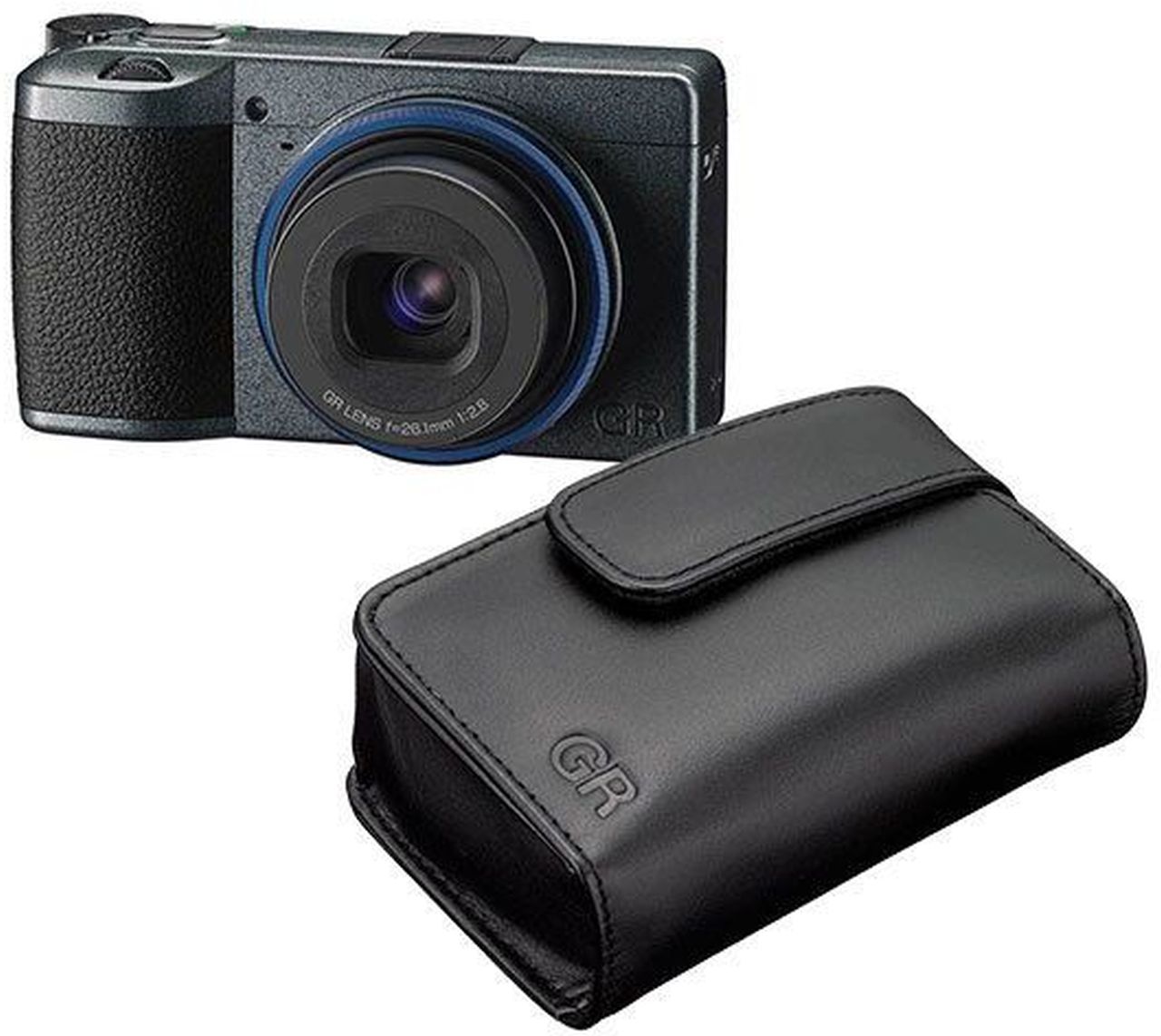
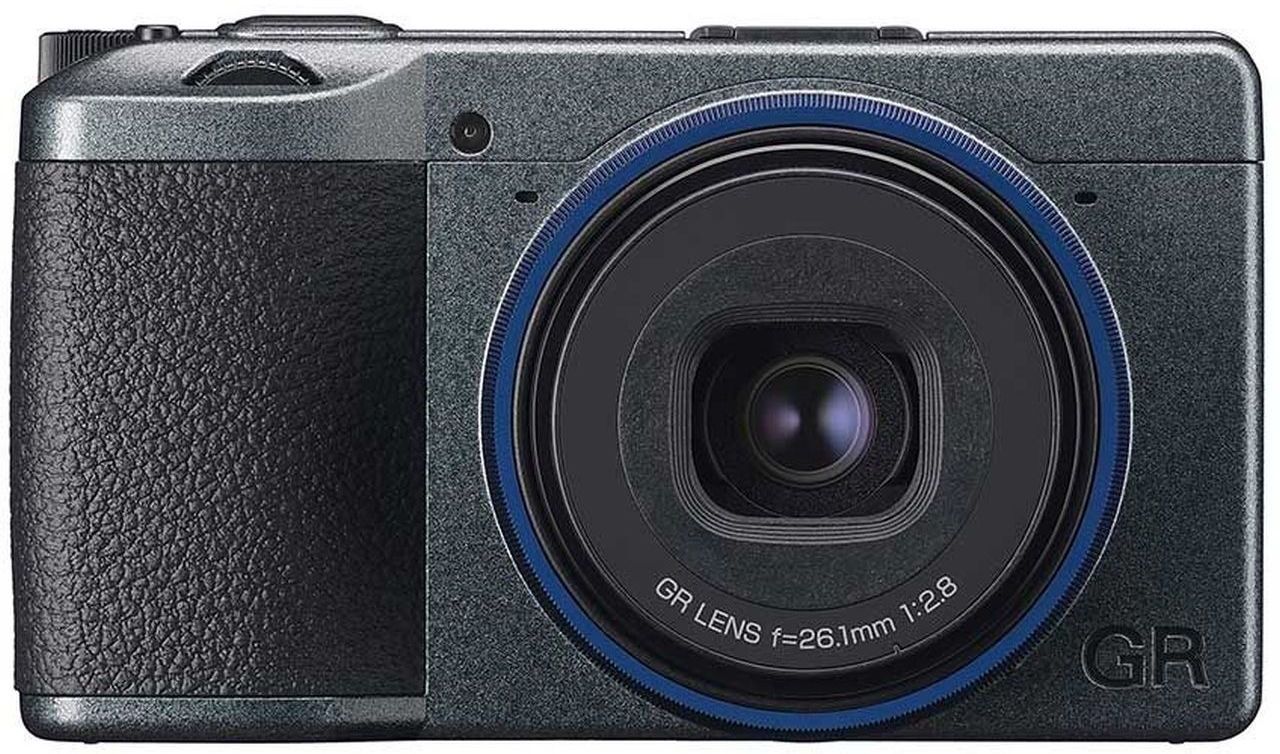
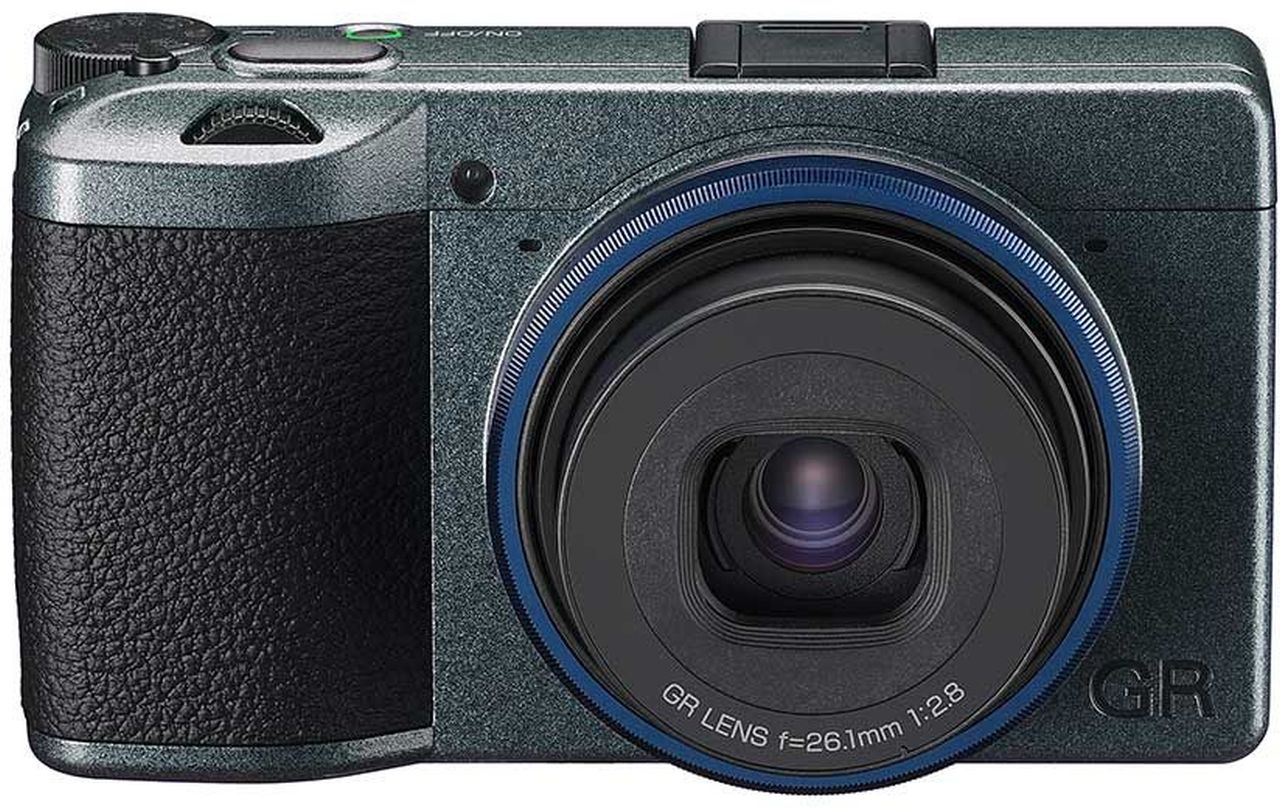
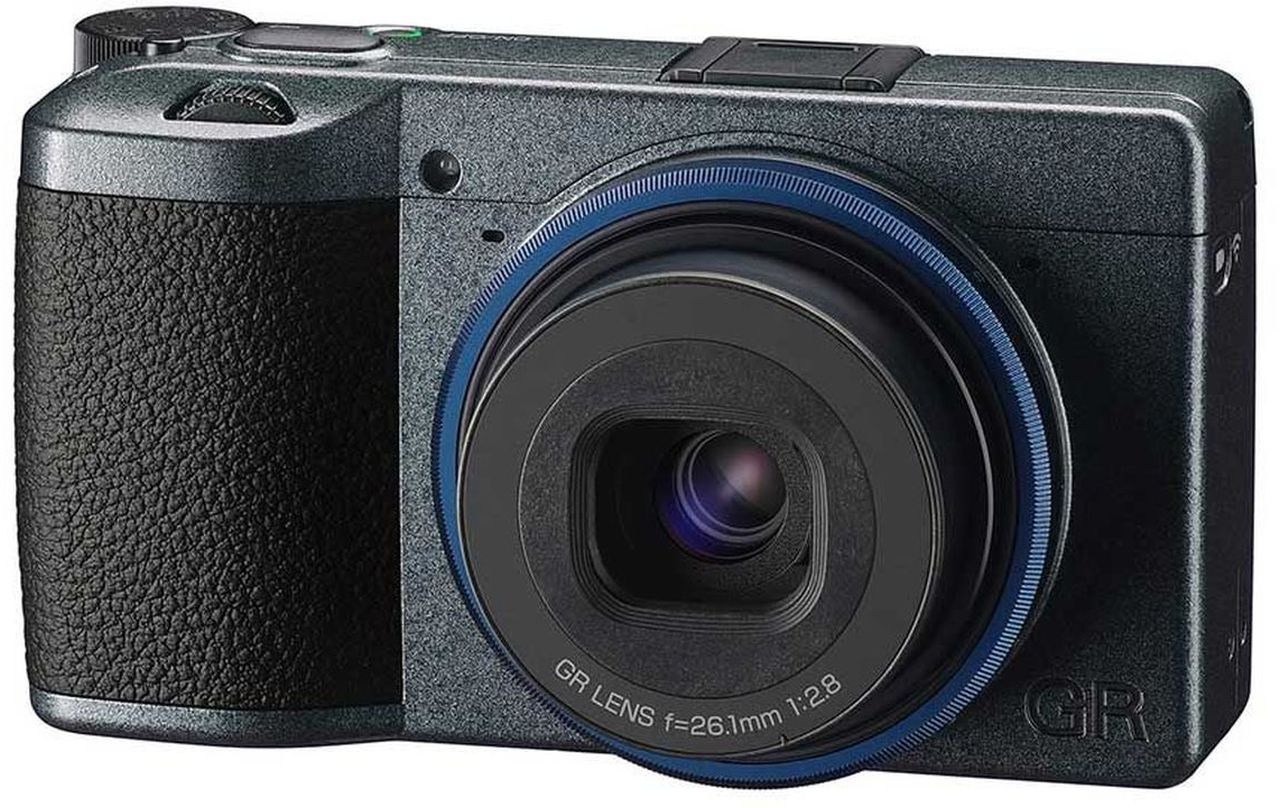
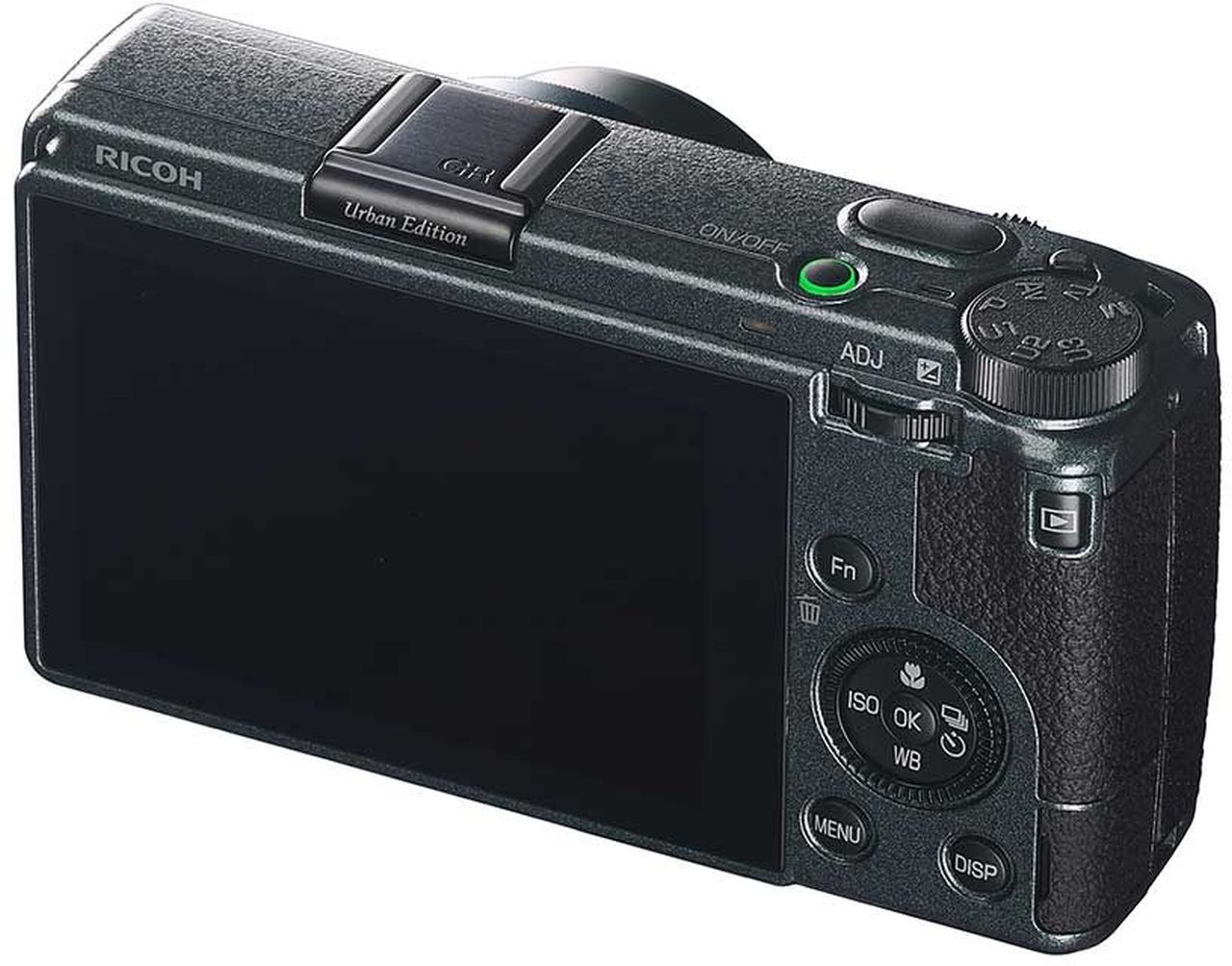
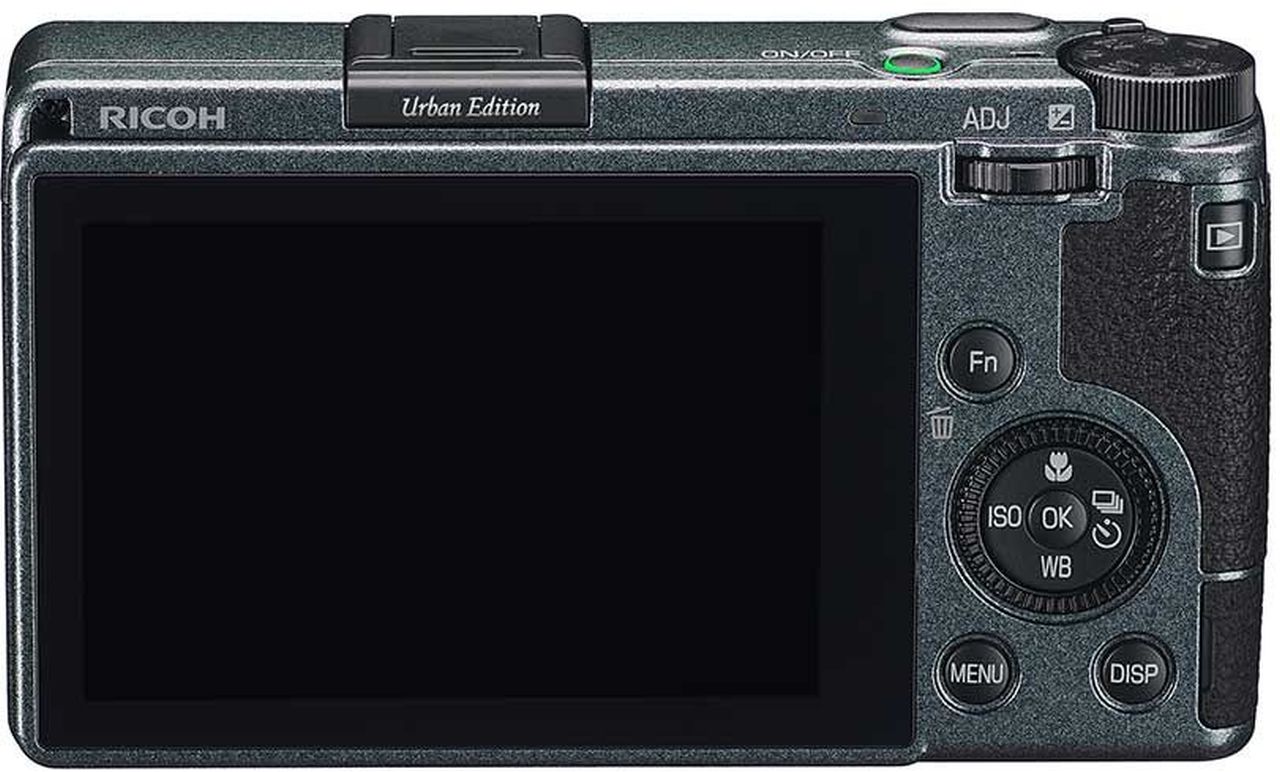
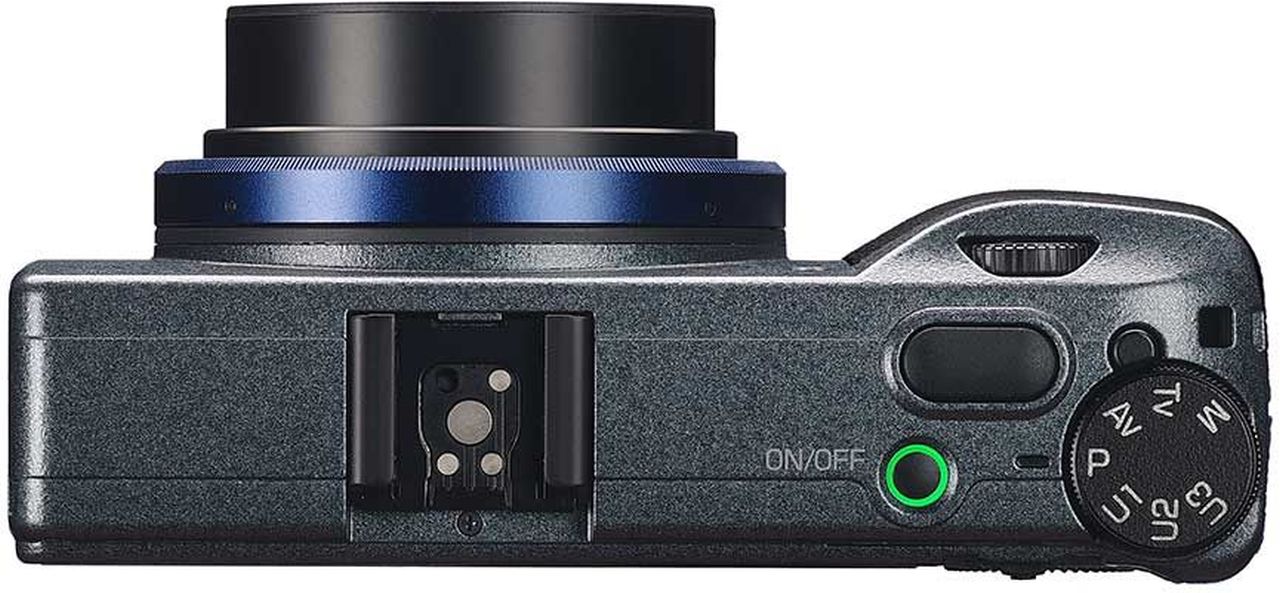
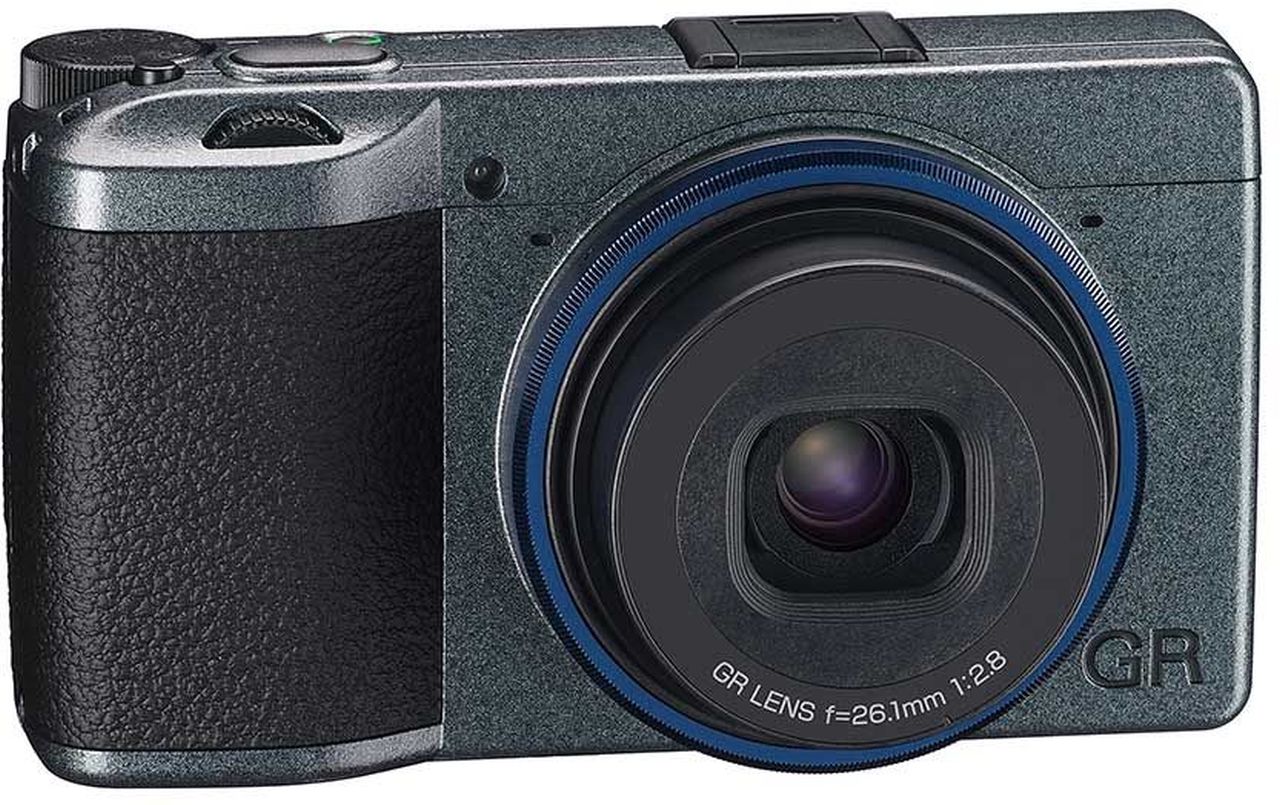
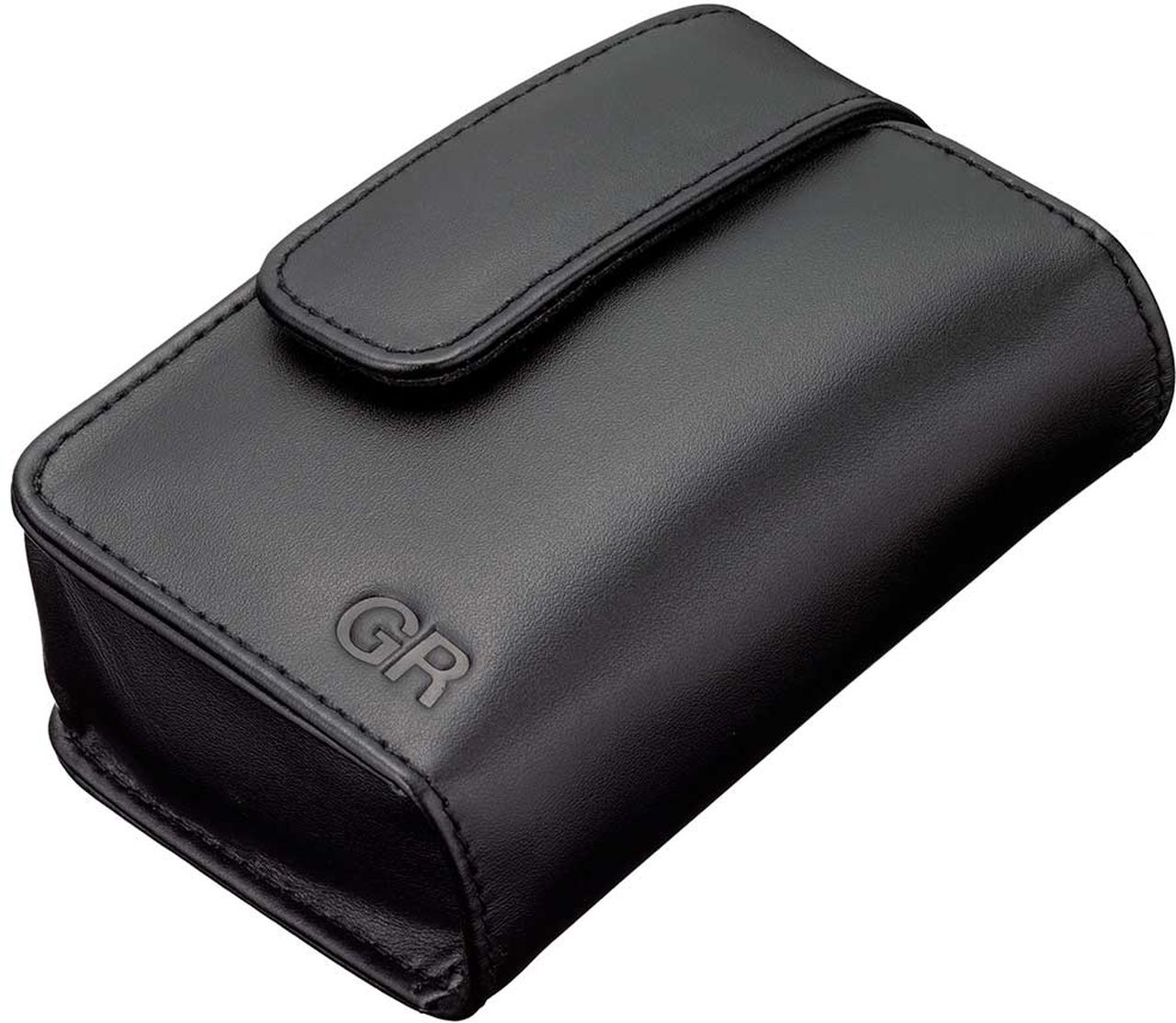
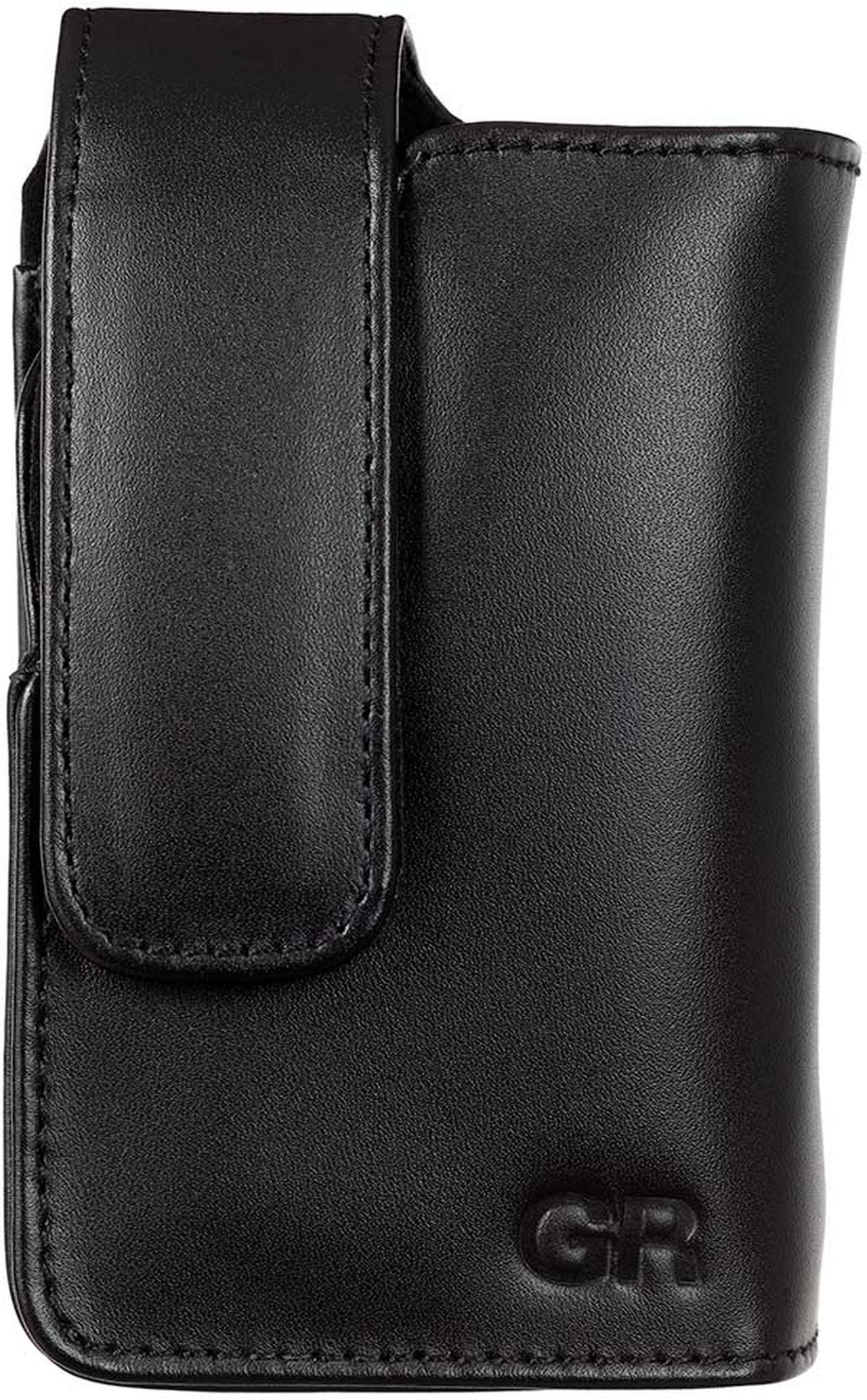
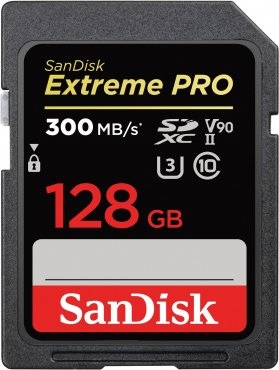
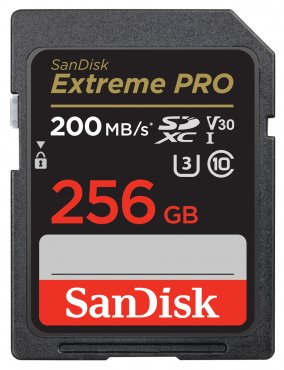
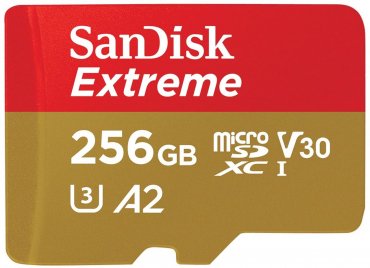
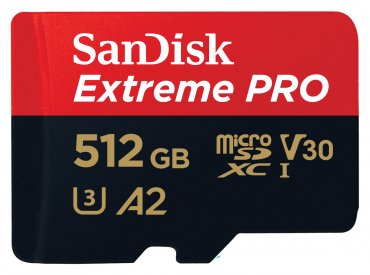
Simply subscribe and benefit as a newsletter recipient every week: